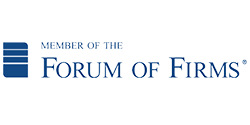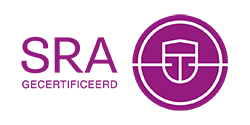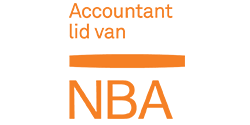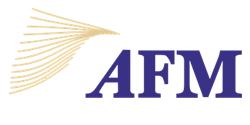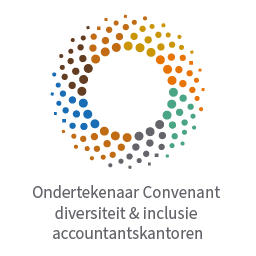Your audit partner in the Netherlands
- Understanding international businesses
- Intercultural and national expertise
- Bridging cultural differences
- Highest quality standards


A highly specialised audit firm for international companies based in the Netherlands
Over the years we have become a trusted auditor for companies with various subsidiaries and holdings spread over different countries. They require audits that consist of complex consolidations spanning multiple nations. These audits have to be relied upon outside the entity’s home jurisdiction and ensure a consistency covering the entire group of subsidiaries.
Why work with us?
We are an audit firm with an exclusive focus on international companies active in the Netherlands. Thanks to our skilled employees from all over the world we have direct in-house access to a wide range of global knowledge. We speak your language, we understand the challenges that come with international business, and we are here to guide you through them.
Cultural Awareness
Understanding your business needs in a globalised world
Quality Standards
AFM licence, member of NBA, SRA and PCAOB registered
In-house knowledge
An international team with the required global and local knowledge

Audit in four steps
Planning and risk assessment
First we make a planning of the audit work, start with the opening balance procedure, do the risk assessment, analytical review, test the design and implementation of the internal controls, and determine the materiality.
Risk response
Based on the scope and risk areas identified in the previous stage, we conduct the audit of the reported financial information. We identify potential consequences and obtain measures to mitigate risks to an acceptable level.
Plans and procedures
This phase is central to executing the audit strategy and involves a structured set of activities designed to gather sufficient and appropriate audit evidence. Auditors carry out the procedures outlined during the planning phase. Financial data is compared to expectations, the effectiveness of internal controls is evaluated, and we gather evidence and documentation to assess whether the evidence supports the audit objectives. All findings and conclusions are documented.
Completion
For the last step we finalise the audit and issue the auditor’s opinion. We review the audit process with your management and see if there are any points for improvement. We wrap things up with a client satisfaction survey
About Reanda
Reanda Netherlands is an audit firm in the Netherlands that supports international organisations based in the Netherlands in audit & assurance, IT audit & Advisory, and financial reporting.
We are a member of Reanda International, a top 25 international network of audit firms.
Our company is regulated by the Financial Markets Authorities (AFM) in the Netherlands and is a member of the NBA The Royal Institute of Chartered Accountants in the Netherlands. We are a certified SRA member and ACCA Approved Employer. Reanda is registered at the PCAOB, allowing us to contribute to audits for US listed companies.

Assurance
How our auditors can help you
Our auditors are specialised in international audit and perform other engagements as well. Our services include:
international audits
- Group audits including the financial statements of the local audit
- Audits based on the International standards of Auditing and conform to the IFAC Code of Ethics for professional accountants
- Managing cross-border audit teams and ensuring consistent application of auditing standards across different jurisdictions
Other engagements
- Audit of condensed financial statements
- Audit of financial statements prepared in accordance with special purpose framework (e.g. subsidies)
- Investigation of future financial information, for example in business plans, financial projections and valuations
- Agreed upon procedures
- Assurance reports other than the engagement to audit and performance assurance on historical financial information
What can we offer to you?
As a renowned audit company in the Netherlands we are familiar with statutory audits for international companies.
An audit is an independent examination of financial information of any entity, whether profit-oriented or not, irrespective of its size or legal form, conducted with a view to express an opinion thereon. In the Netherlands, audits are performed in accordance with the Dutch Standards on Auditing (NV COS), which are based on the International Standards on Auditing (ISAs).
- In the Netherlands, a financial audit is mandatory when at least two out of the following three criteria are met for two consecutive years:
- The value of assets exceeds €7.5 million.
- The net turnover is in excess of €15 million.
- The company has over 50 employees.
Even if these criteria are not met, companies can opt for a voluntary audit.
The audit standards in the Netherlands are called NV COS and are mostly derived from International Standards of Auditing, with some local adjustments
The audit process typically includes four main stages: planning and risk assessment, risk response, plans and procedures, and completion. During the planning stage, the auditor assesses the scope and objectives of the audit, identifies key areas of risk, and develops an audit plan. The stage Plans and Procedures involves gathering and evaluating evidence through various audit procedures, such as inspecting documents, observing processes, and interviewing personnel. The completion stage is the final phase where the auditor presents their findings, conclusions, and recommendations in an audit report.
Clients can expect regular communication from the auditor, including updates on the progress of the audit and any issues identified. The auditor will request documentation and information, conduct interviews with key personnel, and perform tests on financial transactions and balances. Meetings will be held to discuss findings and recommendations, and the auditor will provide feedback on areas for improvement.
The first-year process may involve additional steps and considerations to set the groundwork and establish a reliable baseline for the audit. The auditor will perform a thorough assessment to understand the client’s business, industry and internal controls. The opening balances are verified to ensure they are accurate and complete. Then a detailed audit plan is made and the auditor will perform a risk assessment to identify areas that may require special attention during the audit. Regular communication between the auditor and the client is essential to ensure a smooth audit process.
Clients can prepare by organising their financial records, ensuring all documentation is complete and accurate, and being ready to provide information and access to the auditor. They should also review their internal controls and address any known issues before the audit begins. Regular communication with the auditor can help clarify expectations and ensure a smooth audit process.

The duration of an audit depends on the size and complexity of the entity being audited. It can range from a few weeks to several months. Factors that influence the timeline include the availability of information, the level of cooperation from the client, and the scope of the audit.
If issues are found, the auditor will discuss them with the client and may provide recommendations for corrective actions. Significant issues will be included in the audit report, and the client will be expected to address these issues and implement the recommended changes. The auditor may also follow up to ensure that the issues have been resolved.
Internal controls are processes put in place by management to ensure the integrity of financial and accounting information, promote accountability, and prevent fraud. Auditors evaluate the effectiveness of these controls as part of the audit to determine whether they can rely on them to reduce the risk of material misstatement in the financial statements.

